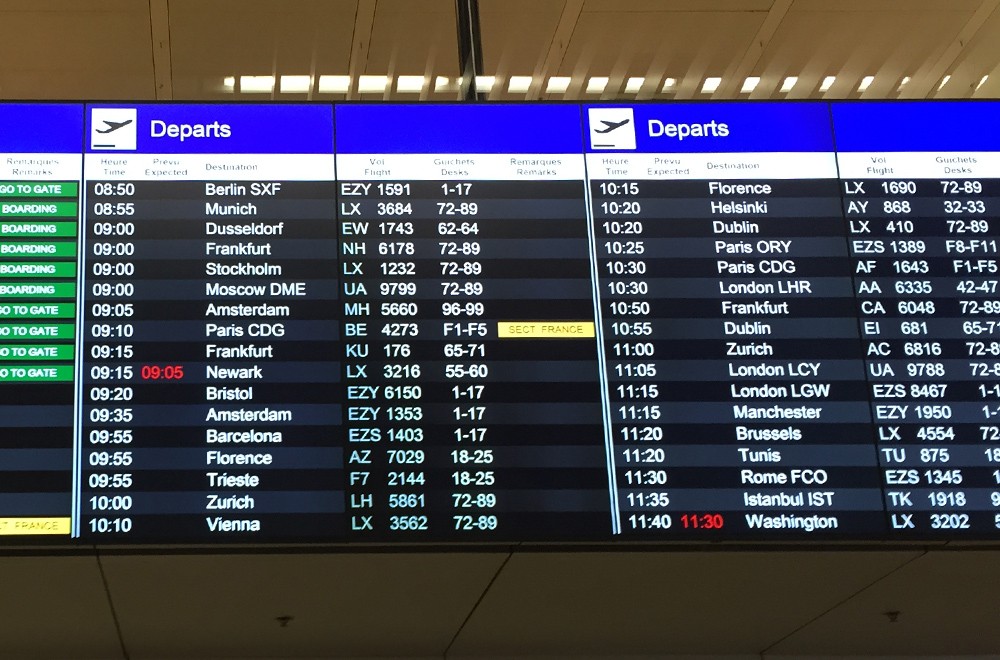5 Reasons Not to Panic About the Worldwide Travel Alert

The State Department has issued a worldwide travel alert and, in my opinion, some people are overreacting. First, such an alert isn’t new: The State Department has periodically issued worldwide travel cautions since shortly after September 11, 2001. Second, the State Department is not advising us to stay home—it’s advising us simply to be vigilant, which is smart on any trip.
Third, why is anyone surprised? When you look at a list of terror attacks since 9/11, it’s clear that anything can happen anywhere at any time. Most travelers I know have, in the years since 9/11, grown accustomed to that fact and learned to live with it. We’ve adapted to the new normal. We know that—as I point out in 7 Keys to Traveling Without Fear Despite Terrorist Attacks—the risk that we’ll become the victim of a terrorist incident while traveling is very small.
The more you’ve traveled, the more direct experience you have that is at odds with what you see on television news or hear about on talk radio, so you’re not overly influenced by the media noise that foments fear. I’ve traveled in many a country at times when a State Department Travel Warning was in place, and there were no signs whatsoever of any problem.
I actually think high airfares may be doing more to keep people from traveling than terrorists are. After 9/11, travelers were convinced that certain swaths of the world were deadly dangerous…until airfares and cruise fares were chopped in half, at which point they pounced on the deals. Every traveler considering a trip does a risk-benefit analysis. When the benefit is great, they play down the risk; when the price drops low enough, they’re suddenly willing to travel.
I’ve been studying travelers closely since long before September 11, 2001. I’ve watched hundreds of them cancel trips for no good reason, lose a lot of money, and miss out on what could have been wonderful memories. I’ve also watched hundreds forge ahead with trips and tell me afterward how glad they were to have done so.
As you wrestle with whether to make or quash travel plans while the worldwide travel alert is in place (it expires on Feb 24, 2016), here are five things to consider:
1. The State Department is not advising you to stay home.
It has issued a Travel Alert, not a Travel Warning. A Warning is for “when we want you to consider very carefully whether you should go to a country at all.” Travel Alerts are “for short-term events we think you should know about when planning travel to a country.” The problem with the worldwide travel alert—and, in my opinion, a reason why some people are panicking—is that it does not provide tangible steps of advice that are easy to follow. But I’ve done so here.
2. State Department advisories have always erred on the side of caution.
If you were running the State Department, would you want to be in a position where a terrorist incident occurs and you hadn’t warned people? No. You’d want to avoid blame. The State Department has nothing to lose by issuing an Alert. It also has nothing to lose if the Alert is not followed by an attack. (That’s because the spin can be that the authorities’ beefed-up vigilance is working.)
3. Other English-speaking governments have not issued worldwide travel alerts.
It’s wise to get a second opinion by checking out other English-speaking governments’ advisories, such as Canada’s, the United Kingdom’s, and Australia’s.
4. If the Alert leads to fewer people traveling abroad, the warmer the welcome the rest of us will get.
There’s no reason to expect to encounter unfriendliness toward Americans abroad. It’s been my experience that there are at least three reasons why most people in most foreign countries are friendly toward Americans (at least, toward those of us who don’t behave like “ugly Americans”). First, locals who depend on tourism are happy to see us, especially when tourism is down (and at a time when the Chinese, European, and Russian economies are flat). Second, Americans tip more than anyone else. As long as we continue to tip the way we do and the rest of the world doesn’t, we’ll be welcome. Third, I’ve found that locals differentiate between an individual traveler and his/her government; they don’t hold you responsible for your government’s policies any more than you would hold them responsible for their government’s policies.
5. The Alert will probably lead to travel deals.
History has shown that special offers will be on the way. When enough people stay home, deals arise. I’ve already signed up for low-fare alerts from AirfareWatchdog, and I’ll look for hotel deals on TripAdvisor. FIve-star hotels and other luxury travel suppliers won’t want to lower their rates publicly because they fear devaluing their product; instead, they’ll share unadvertised deals with their favorite travel agents behind the scenes (including my Trusted Travel Experts).
Of course, each of us has his or her own comfort level for travel right now, and we must each do our own risk-benefit analysis. Nobody knows you better than you, and you’ve got to do what feels right for you. As for me, I’m going to watch out for good travel values and report them here. Watch this space.
Be a smarter traveler: Follow Wendy Perrin on Facebook and Twitter @wendyperrin, and sign up for her weekly newsletter to stay in the know.










US State Dept. advisories are more political than based on any real threat.
Everyone should read this and then go travel! Obviously, there should be higher alerts for many urban USA areas, which are more dangerous than abroad.